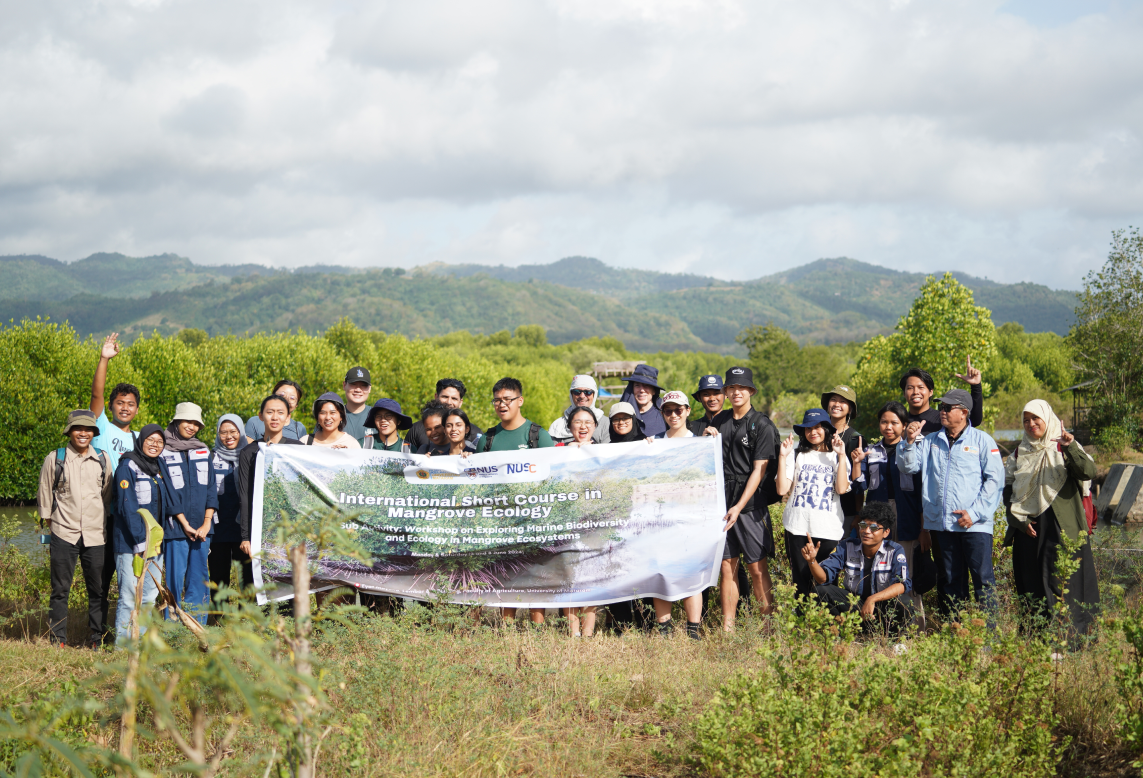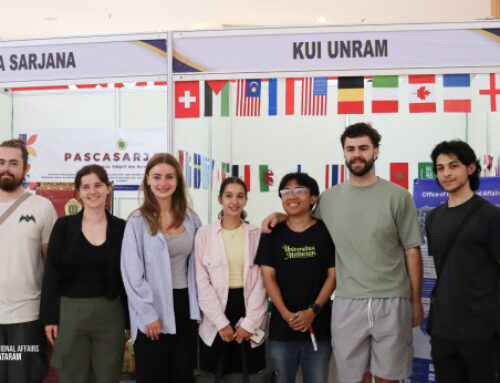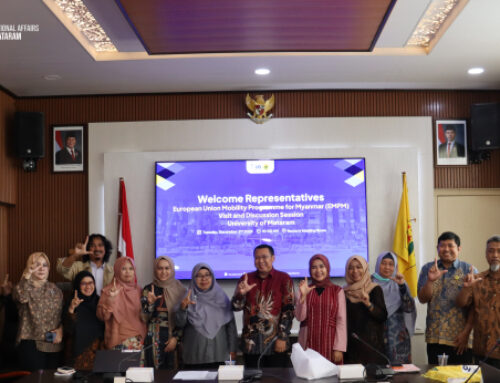MATARAM – The Marine Science Study Program at the University of Mataram, in collaboration with the National University of Singapore (NUS), hosted an International Workshop on Exploring Marine Biodiversity and Ecology in Mangrove Ecosystems on Monday, June 3rd, 2024. The event was held at the picturesque mangrove forest in Eyat Mayang Village-Sekotong and the University of Mataram campus.
The workshop featured a series of lectures, practical activities, and immersive field trips to various mangrove sites. Participants, including students, lecturers, and researchers, had the invaluable opportunity to interact and share their research findings. The event aimed to foster the development of collaborative project ideas that would enhance the understanding and conservation of mangrove ecosystems.
Dr. Bambang Dipokusumo, Dean of the Faculty of Agriculture at the University of Mataram, expressed his enthusiasm for the workshop. “This event is extraordinary, not only for students but also for researchers. It provides them with insights while allowing them to contribute to mangrove conservation.”
Prof. Peter Thomas Vail, Associate Professor at NUS, highlighted the importance of field experience for students. “Students in Singapore excel in learning through books but lack many opportunities to engage in fieldwork. NUS has taken a significant initiative to bring students out of Singapore to learn directly in the field.”
A participating student shared their excitement about the hands-on experience: “I found today’s activity very interesting because in Singapore, it is not easy to get the opportunity to do activities like visiting mangroves and climbing mangrove trees directly to take samples and measure the diameter of Rhizophora.”
This workshop marked a significant step toward international cooperation in marine science, emphasizing the critical role of mangrove ecosystems in global biodiversity and environmental health. The collaboration between the University of Mataram and NUS is expected to lead to further joint research efforts and conservation initiatives in the future.





